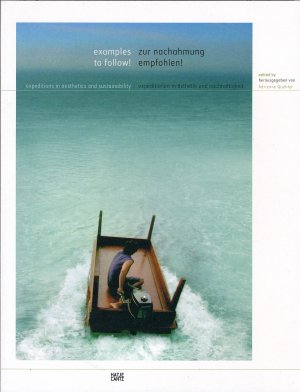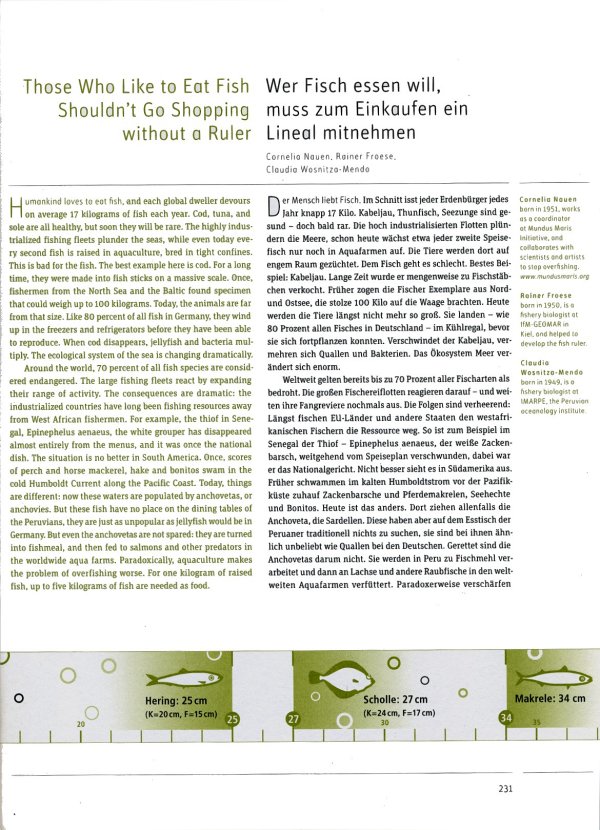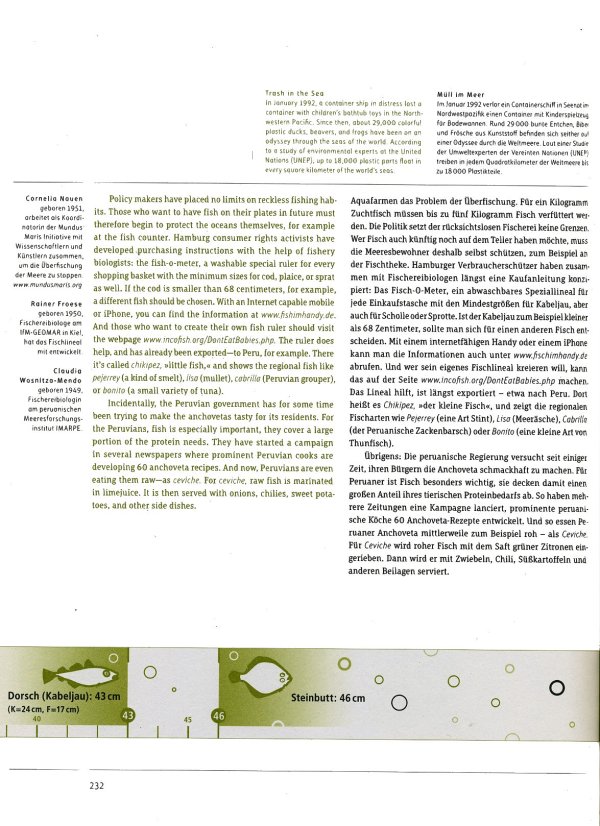Expeditions in aesthetics and sustainability
 The exhibition is centered on finding responses to the crisis we are confronted with, whether it's the financial markets, water, poverty or climate. Adrienne Goehler, former president of the Hochschule für Bildende Künste in Hamburg and now a freelance author and curator, proposes to respond with artistic and aesthetic means. She edited the catalogue of the international exhibition, which was first inaugurated on 2 September 2010 in the Uferhallen, in Berlin-Wedding, Germany. It lasted to 10 October 2010.
The exhibition is centered on finding responses to the crisis we are confronted with, whether it's the financial markets, water, poverty or climate. Adrienne Goehler, former president of the Hochschule für Bildende Künste in Hamburg and now a freelance author and curator, proposes to respond with artistic and aesthetic means. She edited the catalogue of the international exhibition, which was first inaugurated on 2 September 2010 in the Uferhallen, in Berlin-Wedding, Germany. It lasted to 10 October 2010.

Catalogue cover of the exhibition
The exhibition and the catalogue package show artistic practices intended to contribute to protecting the planet from overuse of its resources and promote new thinking and action about consumer behaviour, primarily, but not only in wealthy western societies. Each piece and installation in the exhibition has its own story to tell. Jennifer Allora from Philadelphia and Guillermo Calzdilla from Cuba contributed 'Under Discussion', an overturned conference table retrofitted with an outboard engine and rudder, which became the emblematic image for the entire exhibition. 'Under Discussion' was inspired by the forcing out of US military from the Puerto Rican island of Vieques and the struggle to turn the contaminated and heavily bombarded place back into a space supporting human and wildlife. Thus the table turned into an experimental boat symbolises the change of use and knowledge under changing circumstances and is reminiscent of the first civil protests by the Fishermen's Movement against the ecological fall-out of the bombing.
Among the works on display is also 'Flooded McDonald's' by the group Superflex from Denmark, composed of Bjoernjerne Christiansen, Jacob Fenge and Rasmus Nielsen. According to the catalogue, using editing and camerawork of Hollywood disaster movies, Flooded McDonald's "creates a haunting examination of the consequences of consumerism", when the water level rises in a replica of a McDonald's until French fries and other food and furniture bob up and down at the surface.
Refusing an elitist approach to the arts, the exhibition was accompanied by workshops with children and young people, panel discussions with representatives from the worlds of arts, science, foundations, entreprise and civil society. An accompanying film programme provided further food for thought. It also deliberately blurrs the traditional boundaries between artistic and technological creativity, ideas and practice. Some fourty artistic propositions make up the core of the exhibition, among whom Néle Azevedo, Richard Box, Ines Doujak, Adib Fricke, Till Krause, Klara Hobza, Lukas Feireiss and many others were present at the opening.
It took three years to convince major arts organisations and sponsors to engage with the project carried forward by Foundation Forum der Kulturen zu Fragen der Zeit. Once it caught on, it was funded by the German Federal Cultural Foundation. The Federal Environment Agency Dessau, Heinrich Böll Foundation, The Federal Agency for Civic Education, Goethe Institutes in different countries, WWF and many others also supported the project.
The exhibition was then on tour in several German cities, including in Wendland, Dessau, Bremen and Hamburg. In collaboration with the Goethe Institute displays are scheduled for February-March 2012 in Mumbai, India, and May-June 2012 in Addis Ababa, Ethiopia, and later in Beijing, China.
Not just an ordinary catalogue
In addition, the accompanying book package is not just the ordinary guide to the exhibition. It is composed of a catalogue proper with presentations of the contributors and their works, but also a reader, a children's colouring book and instructions for assembly of a pinwheel, completed by thoughts about founding an Aesthetics and Sustainability Fund. These are intended to extend the positions of the exhibition. The book is published by Hatje Cantz Verlag with support from the Heinrich Böll Foundation. These catalogue publications were awarded the iF-Award in November 2011 after winning other prizes before, namely the Art Directors Club Award 2011 and the red-dot-award 2011.
Mundus maris contributed a story to the Reader 'Those who like to eat fish shouldn't go shopping without a ruler'. Cornelia E. Nauen, Rainer Froese and Claudia Wosnitz-Mendo are the authors. The facsimile ruler reproduced to the left was first developed by the consumer protection agency in Hamburg in collaboration with the INCOFISH international research project funded by the 6th European Research Framework Programme and led by Rainer Froese and Silvia Opitz of IfM-GEOMAR.
 The story goes like this.
The story goes like this.









